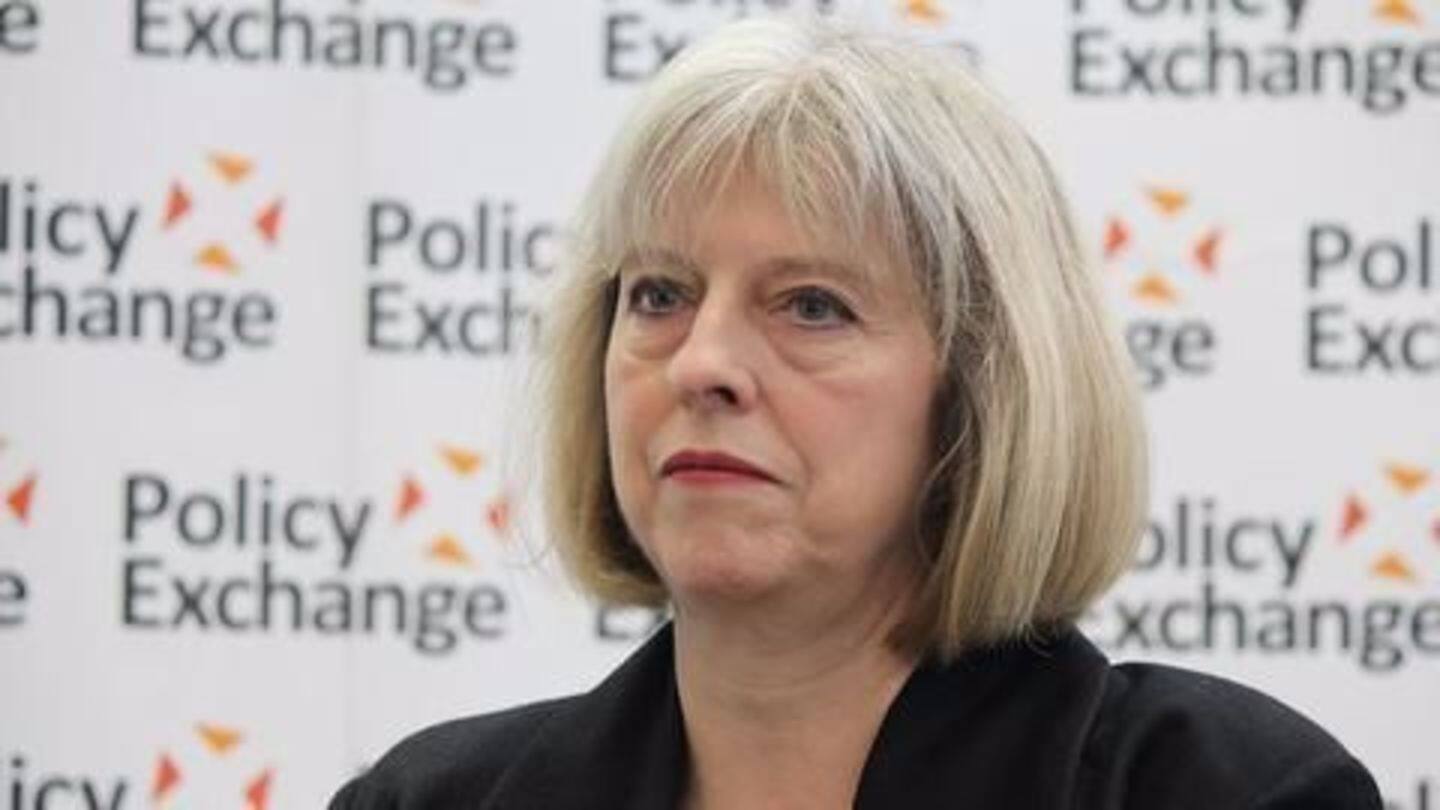
May to form government with DUP, retains top ministers
What's the story
Following British PM Theresa May's decision to form the government with the Northern Irish Democratic Unionist Party (DUP), official sources from her office has indicated that she would retain top ministers including Amber Rudd, Interior minister and Boris Johnson, Foreign Secretary. British media had earlier speculated that if May manages a majority, then those including Finance minister Philip Hammond would be replaced.
Background
What has happened so far?
May had announced snap elections in April, indicating the need for the Conservatives to secure a majority in the Parliament to overcome domestic opposition to the Brexit negotiations. The elections are further being held against two major terrorist attacks on Manchester and London respectively. The Final pre-election exit polls had pointed to a Tory victory.
Data
UK elections: Final vote tally
Tories won UK's snap elections winning 318 out of 650 seats, 8 seats short of securing an overall majority in Parliament. While the main opposition, Labour Party won 266 seats, smaller parties including Scottish Nationalist Party and DUP won 35 and 10 seats respectively.
Details
May goes ahead with forming the government
May's decision to conduct snap elections heavily backfired when the Conservative Party lost overall majority resulting in a hung Parliament. Although Labour Party leader Jeremy Corbyn urged her to step down, May decided to stay on to ensure stability and sought the monarch's permission to do the same. May further expressed optimism that Conservatives can form a workable coalition with DUP.
Analysis
Hung Parliament: What are the possibilities?
Although Tories and DUP have had strong ties over the years, the negotiations are not likely to yield a formal coalition, leading to a weaker government. She will have to hand in her resignation to the Monarch on failure to win a vote of confidence in the Parliament thereafter, resulting in Queen Elizabeth II inviting Labour's Jeremy Corbyn to form a government. If no Party wins the vote of confidence, the results are likely to be scrapped.